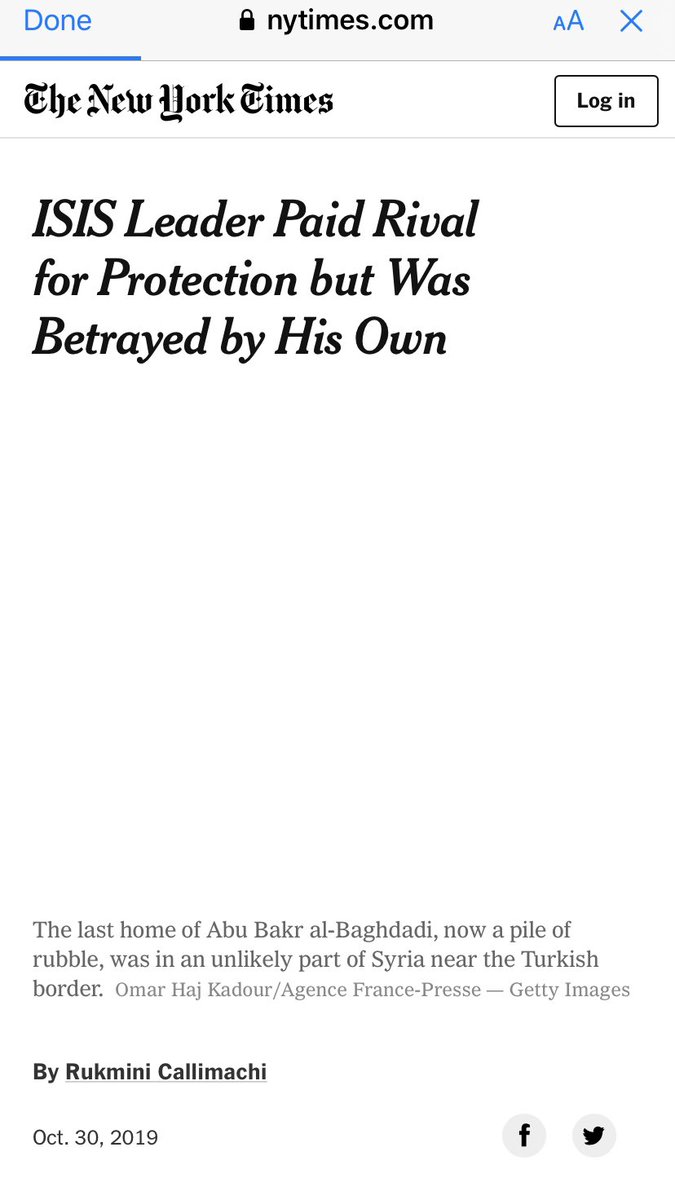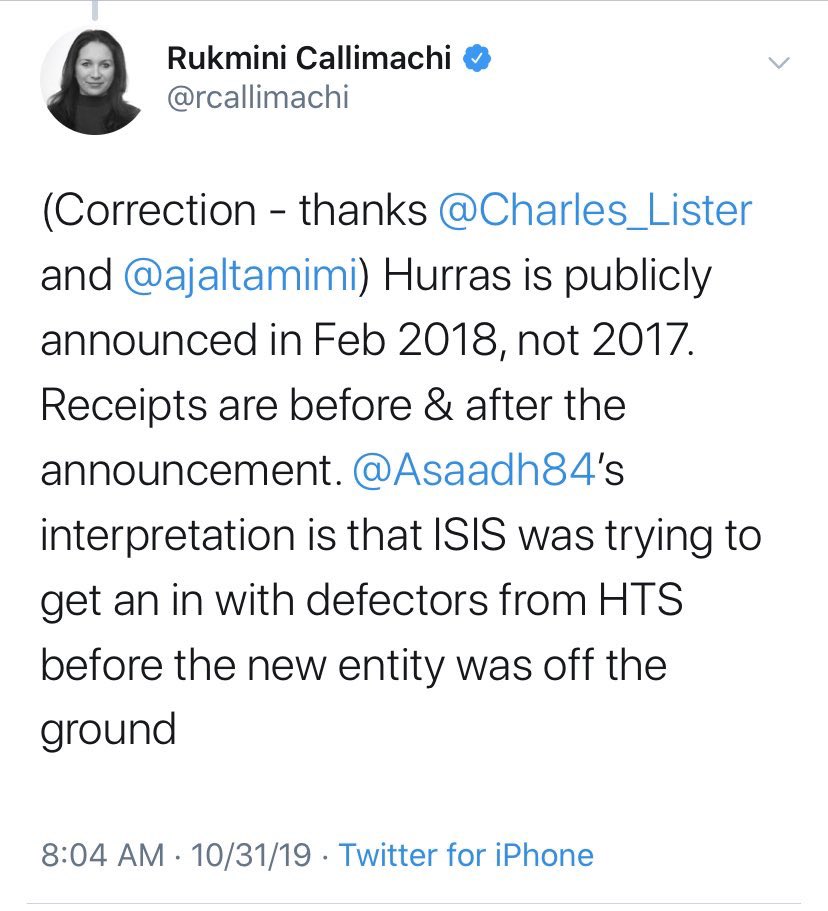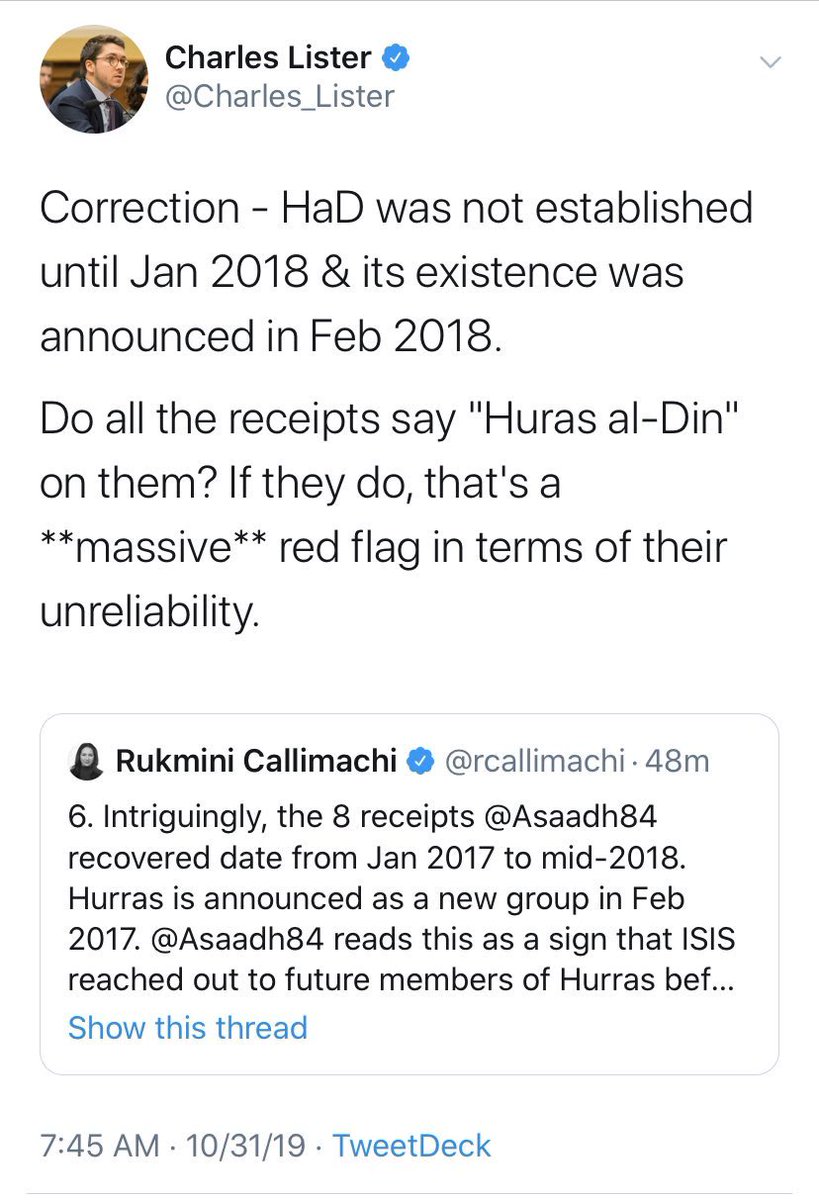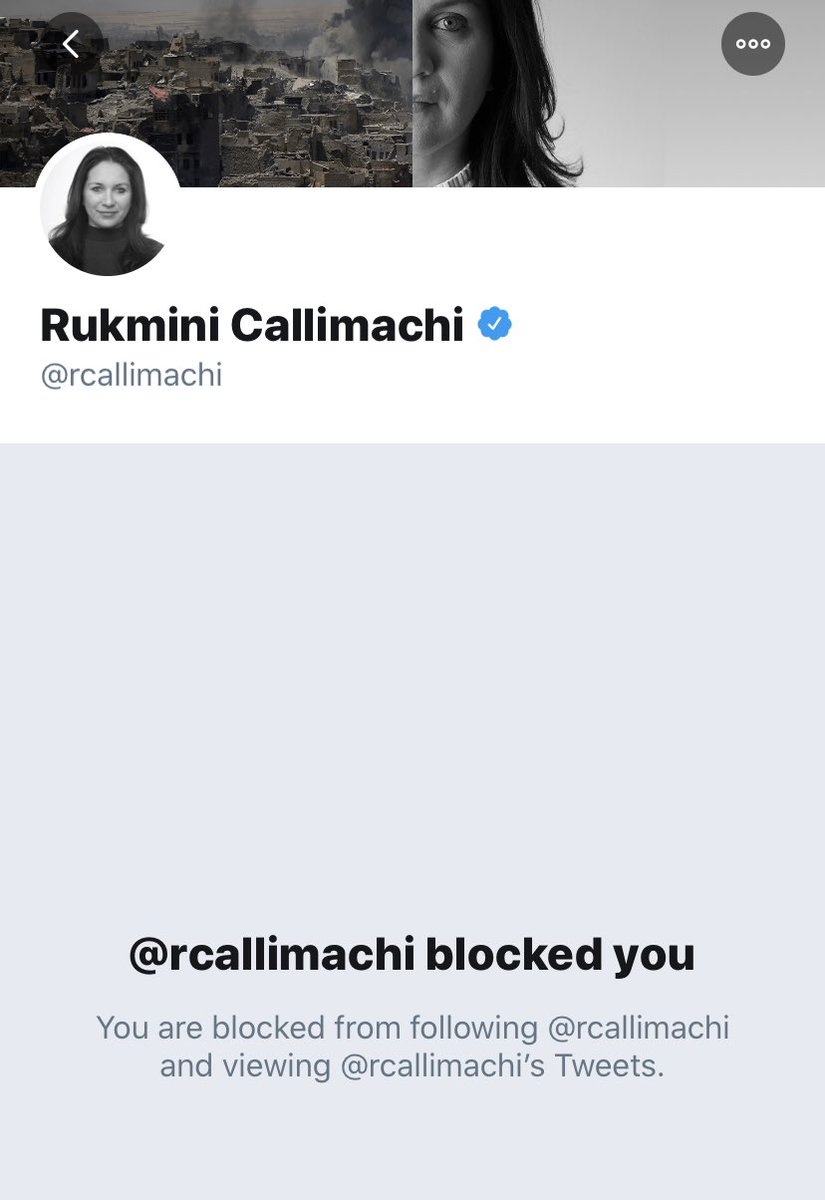• It was based on forged documents
• Made laughable claims
• The expert quoted in the piece, supposedly vouching for the docs, had actually had reservations
• Irregularities were proven
See next tweets:

But aside from those detailed takes, I wanted to point out ethical issues that need to be addressed by @nytimes
aymennjawad.org/2019/10/the-ne…
The expert's full opinion was misrepresented, that's a clear violation; the other half of the docs, ORIGINATING FROM THE SAME SOURCE, were buried.
When that irregularity was pointed out, the reporter outsourced the explanation to the original source. Yet @nytimes didn’t amend!


Not having all these skills is one thing, quite algorithm to misrepresent what those experts say to publish a piece based on questionable sources with questionable agendas.
Another problem with media.

Can experts examine if these “receipts” were filled later somehow, over empty receipts? If empty receipts previously collected & scanned, then later printed or filled, for example.
This piece is another case of misrepresenting facts. Experts agree, aren’t divided nytimes.com/2019/11/14/wor…
Also bigger issues beyond this (scroll up)















